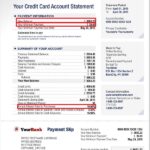Everyone dreams of homeownership once in a lifetime. But the down payments and closing costs require thousands of dollars. To achieve this, people search for incentives, tax credits, or state grants to afford the place in a better way.
Are you also looking for the first-time homebuyer tax credit?
You may be looking for the federal tax credit program, but unfortunately, it doesn’t exist anymore.
But don’t lose hope because many states still offer tax credits that you can use on the federal tax return. To be precise, there are 2500 grants and loan programs countrywide. Even if you had a home in the past, you could still qualify for this.
Take a look at state-level tax credits and other grants for first-time home buyers.
Who Qualifies As First Time Homebuyer Tax Credit?
Contents
U.S. Department of Housing and Urban Development (HUD) defines the first-time homebuyer as follows:
- A person who doesn’t have primary residence in the last three years ending on purchasing date of the property (same applied to his spouse)
- A single parent/displaced homemaker who owned/shared homeownership only with the former spouse while he was married
- A person who owned a homeownership that was not connected to any foundation permanently
- A person who owned a property that was not compliant with state, local, or model building codes and that cannot be made compliant in less cost than needed for constructing a new permanent residence
First-Time Home Buyer Programs Offered At State Level
There are certain first-time homebuyer programs offered at the state level. These programs also provide zero-interest loans and grant money for making down payments. Here are some examples of state first-home buyer credit.
State Affordable Housing Corporation of Texas offers mortgage tax certificates to deduct a significant portion of mortgage interest that you have to pay in the federal tax return. If you got qualified, you might get the opportunity to combine tax break with down payment and closing cost assistance.
The mortgage credit program offered by the State of Florida also offers similar opportunities and grants up to 3% on the home price for the down payment.
New Jersey Housing and Mortgage Finance Agency also have a down payment assistance program (DPA) that provides $10,000 for the down payment and closing costs. This assistance is an interest-free second loan, five years forgivable without monthly payment.
Other Benefits
As a first-time homebuyer, you can also take advantage of the following options:
Grants by HUD
Look for the grants assisted by HUD. The agency doesn’t provide grants individually; however, it does provide funds (exempted from IRS tax) to certain organizations for first-time homebuyers.
Use your IRA
The first-time homebuyers can also take out $10,000 of portfolio earnings from traditional IRA or Roth IRA without the 10% withdrawal penalty. As the penalty-free withdrawal is for every individual, couples can withdraw $20,000 from separate accounts once in a lifetime to combine the amount for their first home. Be sure to use this amount within 120 days to avoid the penalty.
Native-American Loan Options
First-time Native-American homebuyers have the option to apply for a Section 184 loan. This is among the best federal subsidized loans. The loan has a 1.5% loan upfront guarantee fee, 2.25% down payment on loans over $50,000, and 1.25% on loans below $50,000.
HomePath ReadyBuyer Program
Those who participate in HomePath ReadyBuyer program can get up to 3% for closing cost assistance upon completing the mandatory online home buying course. The assistance is utilized in purchasing foreclosed property owned by Fannie Mae.
Home Mortgage Interest Deduction
It allows the mortgage interest deduction on the federal income tax return. For claiming tax break, you have to itemize deductions on Schedule A.
Those who filed jointly as married and took the loan before Dec. 16, 2017, can claim interest on a mortgage of up to $1 million.
Those who purchased a home after Dec. 16, 2017, as married and filed jointly, can deduct interest on the first $750,000 of mortgage debt ($375,000 for single and filing separately).
Property Tax Deduction
State and local tax deductions allow the taxpayers to deduct the money paid as income or property tax.
You can deduct up to $10,000 of local and state taxes from federal taxable income if you itemize on Schedule A.
Renewable Energy Tax Credits
If you have an energy-efficient up-gradation of your home, you may get net tax savings. It is available to homeowners who install
- Solar panels, fuel cells
- Water heaters
- Geothermal heat pumps
- Small wind turbines
- Energy-efficient heating and air conditioning systems





